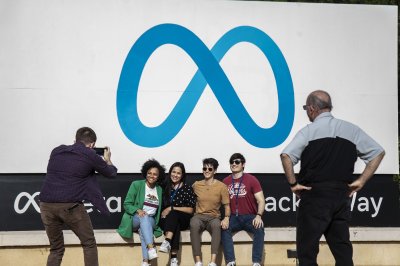Meta removes 500,000 youth accounts under Australia’s new social media ban

Jan. 12 (UPI) — Meta has removed more than half a million social media accounts belonging to Australians under the age of 16, the company said, as it announced its efforts to comply with the Oceanian nation’s new social media age ban.
The law, introduced in late 2024, went into effect Dec. 4, requiring social media services to remove accounts held by those under the age of 16 and younger and block the creation of new accounts for youth under 16.
In the Sunday blog post, Meta, owned by Mark Zuckerberg, said that as of Dec. 11, it had removed access to almost 550,000 accounts of under 16-youth, including 330,639 on Instagram, 173,497 on Facebook and 39,916 on Threads.
Instagram, Facebook and Threads are all owned by Meta.
“Ongoing compliance with the law will be a multi-layered process that we will continue to refine, though our concerns about determining age online without an industry standard remain,” Meta said.
Prime Minister Anthony Albanese introduced what he described as the “world-leading” legislation to ban youth social media use in late 2024, saying the government came to the 16-year limit following consultations with experts, parents, organizations, advocacy groups and academics.
No exceptions were permitted for children already on social media or those with parental consent, making social media companies responsible for restricting children’s access to their services. No penalties are to be imposed against users, with the companies subject to hefty fines for violations.
The ban affects 10 internationally popular social media platforms: Facebook, Instagram, Threads, TikTok, X, Reddit, YouTube, Twitch, Kick and Snap. Others, such as Bluesky, Steam and WhatsApp, could be added if they gain significantly more users or are otherwise deemed social media instead of gaming or peer-to-peer communication sites.
Meta, which has argued against the ban, said it is committed to complying with the law’s obligations, while arguing that the prohibition is linked to isolating vulnerable teens from online communities and driving some to less regulated apps and alternative parts of the Internet.
“We call on the Australian government to engage with industry constructively to find a better way forward, such as incentivizing all of industry to raise the standard in providing safe, privacy-preserving, age-appropriate experiences online, instead of blanket bans,” it said.
According to researchers at the University of Queensland, teenagers on social media have increased exposure to harm, social isolation, depression, anxiety and cyber-bullying.
A 2024 study from Orygen, the world’s leading research and knowledge organization for youth mental health, found nearly all Australian youth reported daily social media use with nearly 40% spending three or more hours online a day.


